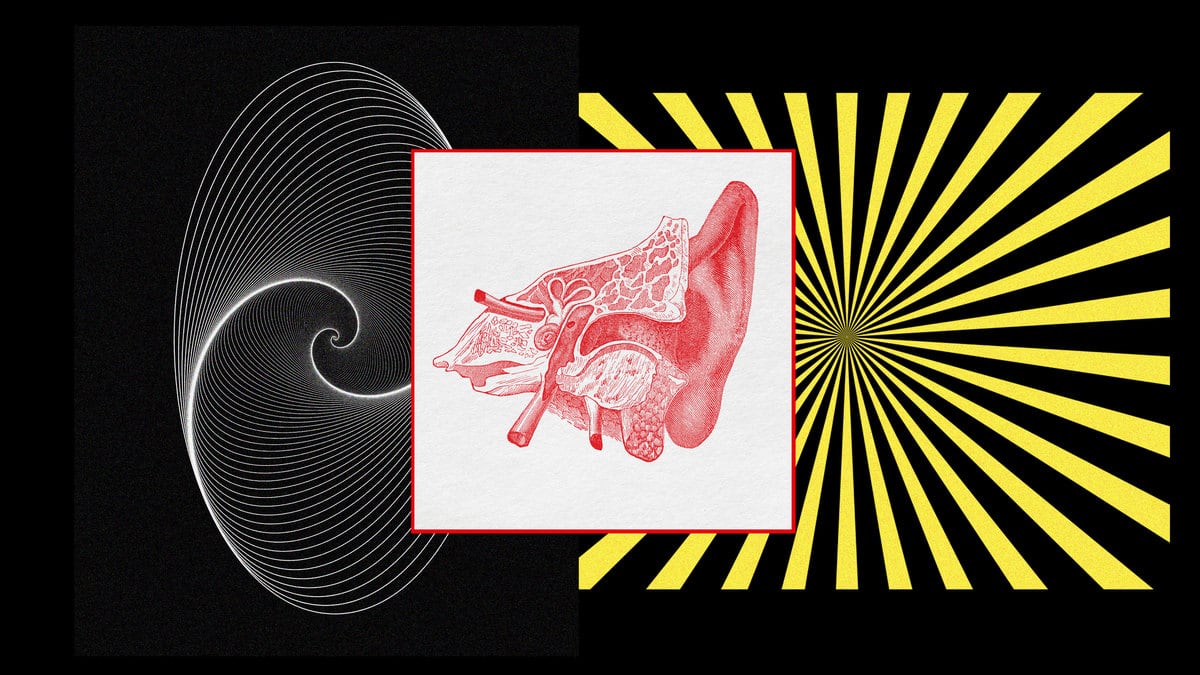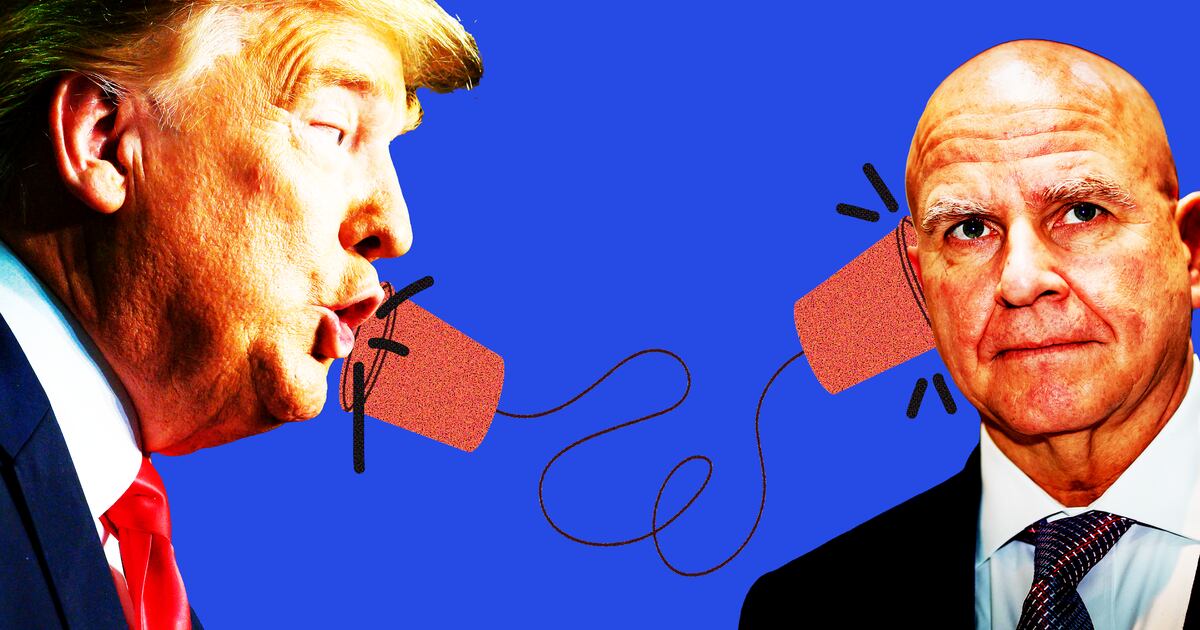United Healthcare’s eleventh-hour refusal to pay for a quick, non-invasive, clinically proven surgery to reverse my sudden-onset deafness from a recent COVID infection was hardly my first ride on the bucking bronco we call— oxymoronically—American health care. But it is the one that finally broke me.
Prior to this refusal, surgeon Dr. Babak Sadoughi and I had done everything by the book. I texted him the minute I lost my hearing, on day four of my COVID infection. He prescribed a six-day course of steroids, but I was still deaf. He cut holes into my eardrums. This relieved some of the pressure, but I still couldn’t hear. He stuck an endoscope up my nose into my sinus cavity, where he noticed that my Eustachian tubes were completely closed shut with inflammation and scar tissue. We scheduled balloon Eustachian tube dilation surgery in his office under local anesthesia the following week. But the tubes were closed so tight that after five fruitless and painful attempts, I cried “uncle.”
Dr. Sadoughi, who’d warned me against doing the procedure under local anesthesia, as it could be traumatic, scheduled surgery under twilight for the following week. Just six more days, I thought to myself. I can make it until then. (If you’ve ever been unable to pop your ears on an airplane, this is how I’ve lived now for over a month and, alas, for the foreseeable future, with the added bonus of deafness and tinnitus.)
All week, as I waited for the physical relief of surgery and the return of my hearing, Dr. Sadoughi’s office kept waiting for approval from my health care insurer, United. It never came. Finally, it was time to leave for the hospital. So I did.
Was my despair, when United denied coverage (“This procedure is not medically necessary for you”), over being sentenced to live in unnecessary silence? Or was it over feeling powerless once again? Was it the cruelty of the denial just two minutes before my 3 p.m. scheduled surgery, as I sat there in my hospital gown, hungry and thirsty from having fasted, with a line for anesthesia already injected into my vein? Or was it the fact that United would not upload its denial into its database in a timely manner, which would have allowed my surgeon to demand an emergency peer-to-peer appeal immediately, while he was still scrubbed in and ready to operate?
“I’m so sorry,” Dr. Sadoughi said, looking crestfallen and furious. “They know I’m here. They’re doing this on purpose. I deal with this stuff every day.”
The only reason I could hear him say this is that I’d just been fitted with $2699.99 hearing aids from Costco—also not covered by insurance, but at least cheaper than more sophisticated versions, which can cost up to $10,000. Five years ago, Sens. Elizabeth Warren and Chuck Grassley passed a bipartisan bill to allow hearing aids to be sold much more cheaply and over-the-counter, but the FDA has yet to implement it.
The nurse shook her head, shocked, while removing the line from my arm. “I’ve seen them deny care before,” she said, “but never like this.” I paid the $37 parking fee and downed a banana and two hard boiled eggs from the hospital commissary. Then, still wearing my hospital bracelet, I sat down on the ledge of a planter outside the building and bawled.
This was the proverbial straw that crushed my back after 56 years of wandering through the arid desert we Americans mistake for a functioning medical system.
The “medical gaslighting” of women
Once, hours from death but fearing a surprise four-figure ambulance bill—I was hemorrhaging from both vaginal cuff dehiscence and $2400 monthly COBRA payments following a job loss, two college tuitions, plus the normal 45 percent decline in standard of living of women who divorce in middle age. I insisted, against my daughter’s protestations, on taking UberPool to the emergency room.
My out-of-pocket expenses for three pregnancies in 1995, 1997, and 2006—when I had what was considered excellent health insurance—were $27,000: a cosmic joke in a country without paid parental leave or affordable childcare.
Then there was the time five months after the birth of my third child, when an overscheduled doctor stood over my body, rolling his eyes, after I’d passed out from pain on the floor of his waiting room. “Come on,” he said, “It can’t be that bad. It’s just gas.” I was 40 years old. Postpartum women over 35 have an 84 percent greater risk of appendicitis. Three hours later, I was being wheeled in for an emergency appendectomy. (Medical gaslighting of women is a whole other issue, and appendicitis in women is routinely underdiagnosed compared to men.)
In fact, the American medical system—if one can even call chaos a system—is significantly worse when you’re a woman, because we don’t study women’s bodies, and it is multiple times worse if you’re a Black woman. And don’t even get me started on what’s happening with abortion in this country. (Abortion is health care. I’ll be taking no further questions.)
Females, for example, are at greater risk of the kind of Eustachian tube dysfunction I’m now being forced by United to live with. And menopausal bodies like mine are studied least of all. To manage the chronic urinary tract infections (UTIs) of menopause, for example, I was prescribed a prophylactic dose of Nitrofurantoin, which never worked. It took a female urologist reaching out over Twitter to change my life with one DM: all I needed was vaginal estrogen, she said. I’ve had zero UTIs since.
Alas, while insurance did cover my useless, post-coital antibiotic—the overuse of which ironically can lead to more UTIs, never mind the growing problem of antibiotic resistance—I now pay $80 a month out of pocket for a combination of Divigel ($45/month) and generic Estradiol inserts ($35/month) to keep my body safe from sepsis. (Which is significantly less than what many of my menopausal friends have to pay on their plans.)
“Where do I begin?” said Dr. Rachel Rubin, the fed-up doctor who reached out to me over Twitter. “It’s all a dumpster fire of brokenness. The insurance companies get to dictate medical care and go out of their way to deny medications, surgery, or treatments with no repercussions, or require crazy hoops of prior authorizations for practices to have to send in. Patients are tired, doctors are tired, and the insurance companies are raising rates after two years of making a surplus because nobody went to the doctor during the pandemic.”
Some of the advice we women get, for lack of studies or knowledge, is patently absurd. When I scheduled a hysterectomy to combat the adenomyosis it took sixteen years to diagnose, I was advised to keep my cervix, as it was believed to play a role in sexual pleasure. This was malarkey, based on a hunch, not clinical studies. Five years later, that cervix became diseased and had to be removed in yet another eight-hour surgery under general anesthesia. But first, we had to get insurance to understand what was going on between my legs and approve the second surgery—which would have been as side-splitting as a Benny Hill skit, had I not been the one lying there in stirrups with blood splashing on linoleum tiles as my doctor searched in vain for a proper insurance code.
“OK, so here’s the problem,” she said, her back to me as she stared into the abyss of her computer. “We don’t even have a pull-down menu option for whatever this is. I can choose abnormal uterine bleeding—you know, miscarriages, pregnancy spotting, postpartum bleeding, stuff like that—but there’s no option for abnormal nonuterine bleeding.” Without a diagnostic code for my insurance company, her office could not be paid, and we could not move forward with my care. My cervix turned out to be precancerous and in need of a trachelectomy, which also required preauthorization from an insurance system that did not recognize why I was bleeding from my vagina without a uterus.
Finally, the trachelectomy was approved, but because hospitals kick you out the next day (our bodies are worth much more in the operating room than they are recovering post-op), this led to the stitches at the top of my vaginal canal coming undone, which led to that UberPool to the emergency room for life-saving surgery. (Are you starting to notice this is a repeating cycle of unnecessary suffering?)
Why do Americans accept living like this?
For the sake of space and decorum, I’m leaving out several more glaring examples of the kind of health care barbarism that has Canadians, Brits, and Europeans writing me frequent emails of shock and horror, after reading about them in my latest book.
I should also note that the only reason I have what’s considered excellent health insurance in America—never mind that United Healthcare would rather I continue to be deaf than pay for a simple procedure to give me back my hearing—is because a generous patron, who wishes to remain anonymous, also read that book and, shocked by its contents, offered to provide my health insurance gratis, until I’m eligible for Medicare in nine years, when I turn 65. (That is, should Medicare and I both survive that long, which is no longer a given in America.)
In fact, according to a 2021 study, 1.1 million deaths—including one in two of those under 65, thanks in large part to our abysmal health care system—“would have been averted if the U.S. had the mortality rates of other wealthy nations.”
This surprise, out-of-the-blue gift of health insurance—the kind citizens of so many other countries take for granted—moved me to tears. It was also life-altering, allowing me to choose my own projects and create my own income-generating publication, never mind the ability to earn more as a freelancer than I earned at former jobs that came with insurance.
But if health insurance won’t actually pay for our care, we remain sick and suffer in silence, which for me right now feels quite literal. I am deaf and filled with despair over the fact that our country will probably not get its act together and mandate universal health care as a right, not a privilege, before my daughter—now in her second year of medical school—faces her own challenges as both the owner of a uterus and as a doctor being told what care she can and can’t provide to her future patients—in order to keep insurance company shareholders happy.
UnitedHealth Group’s revenue, by the way, grew by 11.8 percent in 2021, climbing to $287.6 billion. Andrew Witty, its CEO, had a 2021 pay package worth $18.4 million.
Way to go, for-profit health care! You’re definitely fulfilling your primary goal (however perversely). Meanwhile, those you’re mandated to serve languish in health-care purgatory and die.
How bad is the for-profit health insurance system? Barbarically bad.
As a gut check, I called my younger sister, Dr. Laura Copaken, a pediatric orthopedic surgeon in Frederick, Maryland. How often, I wondered, is she fighting with insurance companies to provide care to her young patients. She burst out laughing. Then she sighed.
“Um, every day?” she said. I asked for details, without breaking any HIPAA rules. “OK, so just today, for example,” she said, “I had to do a peer-to-peer appeal on an infant who couldn’t straighten their legs since they were born. I have been serially casting this child, but now they were ready for a Dynasplint. Insurance denied it.”
“So what happens now?” I said.
“The child will regress,” she said sadly.
“Prior authorization is out of control,” wrote Gerald E. Harmon, MD, Immediate Past President of the American Medical Association, in an Aug. 3, 2022, email to U.S. doctors. “Once limited to a small number of new treatments, it’s now being applied widely, even to generic drugs and established regimens. The result: delayed, denied, and abandoned care.”
Tackling this scourge has become the issue for the AMA. Last week, they were able to get the House Ways and Means Committee to pass H.R. 8487 (the Improving Seniors’ Timely Access to Care Act of 2022) which would streamline the prior authorization process for those covered under Medicare. “We’re urging the full House and the Senate to act swiftly to push prior authorization reform into law,” wrote Dr. Harmon.
After friends found out about my denial of care and ongoing deafness—easily rectified with the surgery, as my hearing loss is not sensorineural but rather conductive, meaning it’s the Eustachian tubes, stupid—I was inundated with offers to start a GoFundMe to raise the money for my surgery.
“But this is not how a functioning society should work!” I kept saying.
Meanwhile, to scroll through a typical GoFundMe thread on Reddit is to feel a sense of abject horror that America has sunk so low: a son begging for help for his single mother, battling stage 4 pancreatic cancer; a mother “drowning in newborn emergency medical bills;” a 3-year-old whose parents need help paying the neurosurgery bills for her brain tumor. And that was just page 1 on the day I happened to look.
The fact that one in three GoFundMe campaigns are now for health care-related costs is not the heartwarming story often presented to us on social media or the news. In fact, it’s our national shame. This is why health insurance companies like United are supposed to exist: to pay for needed health care. Not to pass the buck of those costs onto the general public via private donations. Even Tim Cadogen, CEO of GoFundMe, said, “The situation is nothing short of a national emergency.”
Last week, Dr. Sadoughi was finally given a peer-to-peer hearing for my surgery. While he was on vacation in Italy. He spoke to the OB/Gyn assigned to my case. (I always thought vaginas and ears were located in different areas of the body, but maybe that’s just me.) Once again, coverage was denied. Repairing my hearing was deemed “not medically necessary.” Never mind that I’ll be much more expensive to United should my hearing loss lead to dementia, as many studies have conclusively proven.
When I started my adult life back in 1988, I was based in Paris. As a combat photographer, I had plenty of visits to French doctors: once to remove a small piece of shrapnel from my hand, another to stitch up a stab wound on my arm. I never paid a single medical bill. I just went to the doctor whenever I got sick or injured or needed a pap smear, and I received care. I didn’t worry about going bankrupt over an ambulance ride. My birth control pills were practically free. Je ne regrette rien, but still: I often wonder what my life, health, stress level, and bank account would look like, had I never come home to face the barbarism of American health care.
Would I still be deaf if I lived in France, as opposed to America? Or would I have been treated and heard?








